As twilight approached on yet another gorgeous Southern California day, a cantor led a service bursting with guitar and dance. The room was packed with daveners, and kids circled a table, the youngest ones carrying Torah scrolls.
While this might be de rigueur at many synagogues on a Friday night, it’s not usually on the menu at local delicatessens — except at Lenny’s. Since May, the new Lenny’s Deli, which earlier this year replaced Junior’s on Westwood Boulevard, has been hosting Shabbat gatherings.
Billed as “Lenny’s Friday Night Shabbat Room,” the restaurant has devoted a rear chamber (something resembling a glass-windowed conference room) to weekly Shabbat services. Rabbi Jerry Cutler leads them once a month, with the rest being conducted by Cantor Estherleon Schwartz.
“Everyone is inquisitive,” owner Lenny Rosenberg told the Journal, chuckling. “’What’s going on in that room?’ They think it’s a mystical event.”
Not only non-Jews show up but, to Rosenberg’s constant surprise, lapsed Jews who have no idea what the Sabbath tradition is all about. (Reservations are required.)
At one such evening on Aug. 2, Schwartz, 72, led a lively service of 30 attendees who prayed while other diners nonchalantly nibbled on their French dip sandwiches and sipped their matzah ball soup. The rest of the restaurant didn’t bat a collective eye as, at one point, younger participants during the service activated flashing rings and blew giant soap bubbles.
“They’re my Shabbat Power Rangers,” Schwartz said.
Professionally, the goal for Schwartz, a child survivor of the Holocaust, has always been passing along the miracle of her continued existence as a metaphor for Jewish survival.
For Lenny’s, this is part of a larger story of resiliency as well. The last few years have not been kind to the Jewish institution known as the delicatessen in the Los Angeles area.
Broadway Deli in Santa Monica closed in 2010 after a 20-year run when it could not meet a rent escalation. The aforementioned Junior’s, a West Los Angeles tradition since 1959, closed due to what the owners called a landlord dispute at the end of 2012. And two Jerry’s Deli locations — in Westwood and West Hollywood — were shuttered in recent months.
Rosenberg, a second-generation baker in his mid-40s who comes from Long Island, N.Y., has himself been involved in a number of businesses.
Back East, his father, Robert, made bagels for a living. Lenny Rosenberg had six such businesses in that part of the country before coming to Los Angeles years ago, where he ran Bagel Nosh Deli in Beverly Hills (since sold to new owners and revamped as The Nosh of Beverly Hills), Santa Monica’s 17th Street Cafe and Mayer’s Bakery in Rolling Hills Estates before that. He also opened the short-lived Lenny’s in Pacific Palisades in 2011 at the former Mort’s Deli location; it changed names and closed after he sold it in early 2012.
When he reopened Lenny’s in the old Junior’s space in February, Rosenberg did more than reboot his restaurant; he made it bigger, better and more religious than before. (The restaurant’s Rosh Hashanah menu the nights of Sept. 4 and 5 incudes gefilte fish, brisket, kugel, macaroons and more.) While the entrepreneur said he himself is not particularly Jewish, his late father came from an Orthodox background.
The concept for the Shabbat Room is a collaboration between Rosenberg, Morry Waksberg and a group that the latter frequents for informal brunches at Canter’s Deli that includes L.A. machers and real estate moguls Stanley Black, Max Webb and Larry Field. While Lenny’s charges $18 for the Shabbat Room to cover costs, making money was not Rosenberg’s prime motivation, he said.
“I felt an obligation to do this,” he said. “My father came from a very Chasidic family in Europe.”
He was also a survivor of Auschwitz, although he never discussed it, Rosenberg said.
At the recent Shabbat gathering, Field kibitzed and noshed with Rosenberg, Waksberg and publicist Michael Levine, whose teen daughter Morgan had just completed her first day working at Lenny’s.
“I’m astonished!” Levine said. “It’s bigger than I thought it would be.”
Participant Julie Knapp, a handbag designer, said that Schwartz was a perfect leader for the occasion.
“She was great and she really appeals to everybody,” Knapp said.
Waksberg, whose parents survived the Holocaust, also praised Schwartz.
“Esther is very loving, very pure,” he said. “She doesn’t think about her own welfare, she always thinks about others in the community.”
Like his late father, Rosenberg takes pride in his product — and not just what ends up on the table. He personalizes the deli experience by circulating among the tables and offering customers free samples of baked goods. Rosenberg also has brought aboard a holdover from the Palisades Lenny’s, family-friendly musician Michael Cladis, to engage children on Tuesday nights, while Memphis “Piano” Joe performs rhythm and blues on Saturdays.
Through such gestures, Rosenberg said he intends to go the extra mile and embed “a really good community feeling” into this Lenny’s, making it the kind of local hub that will ensure its longevity and cement its place as rightful heir to the Junior’s throne.
For people like Waksberg — whose father told him about the Auschwitz prisoners’ efforts to conduct a secret Shabbat ceremony, at great personal risk, every Friday — the prospect of the Shabbat Room could end up being so much more.
“It’s really about hope!” Waksberg said. “What’s more hopeful than counting the days until Shabbat?”










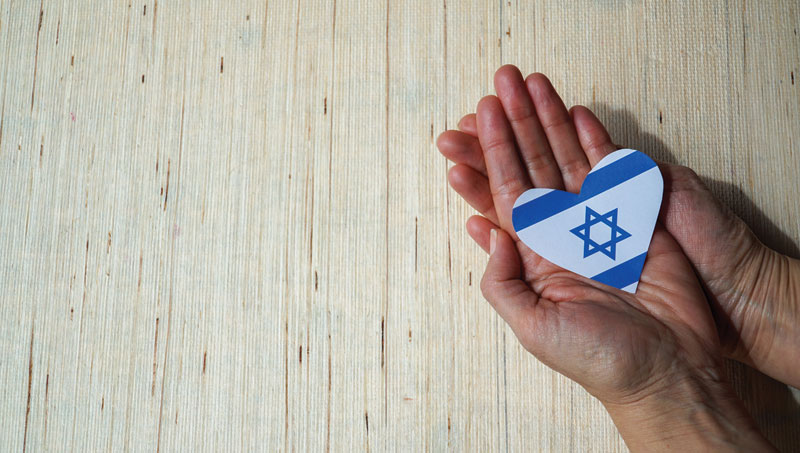


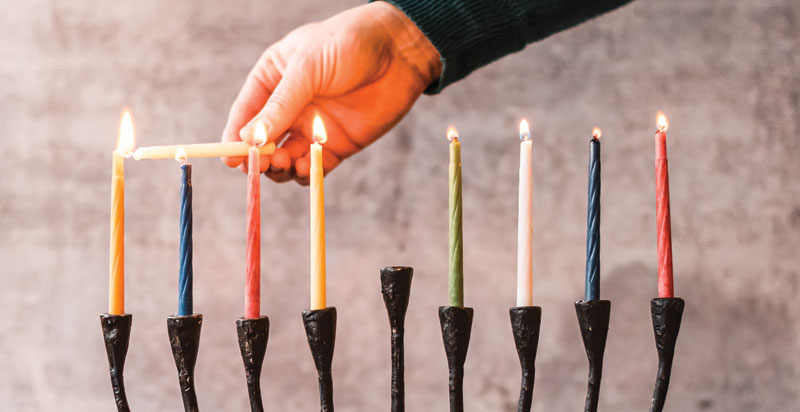
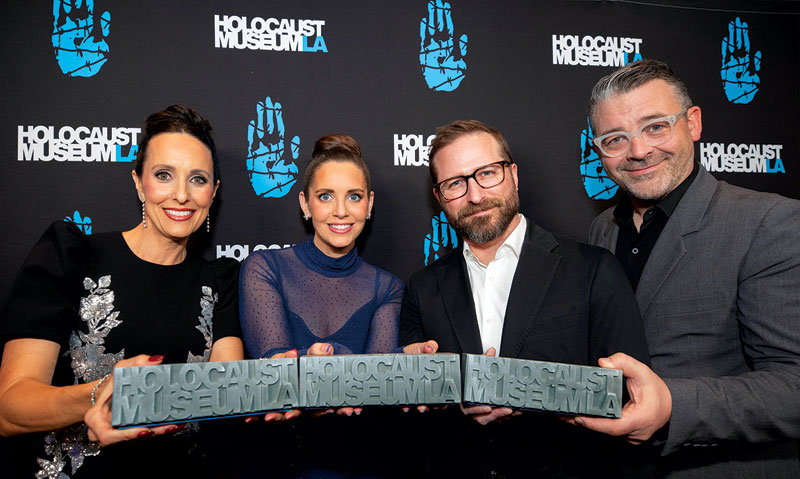
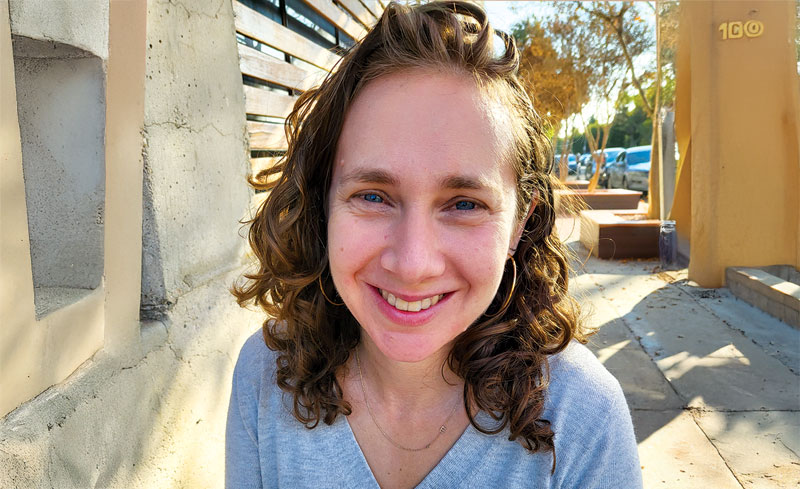
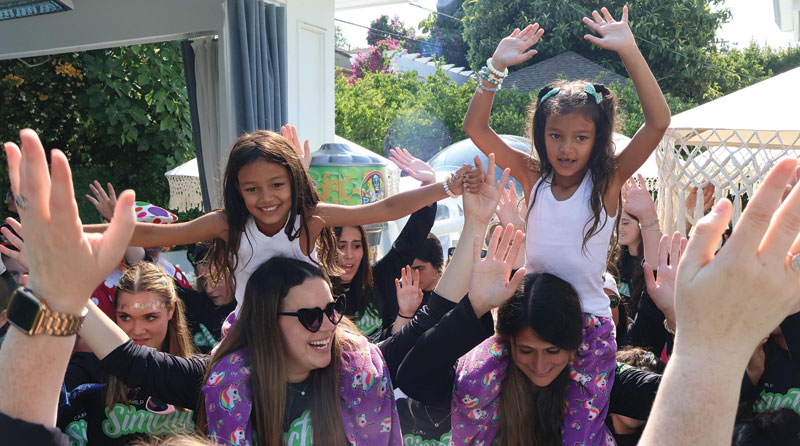





 More news and opinions than at a Shabbat dinner, right in your inbox.
More news and opinions than at a Shabbat dinner, right in your inbox.